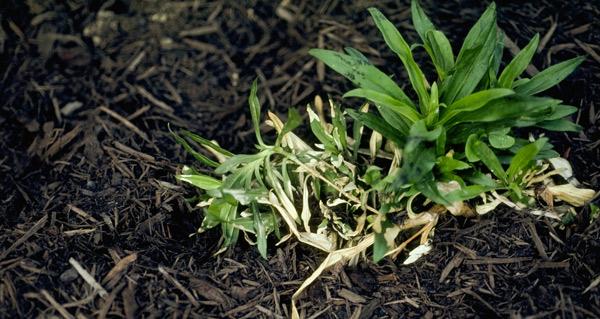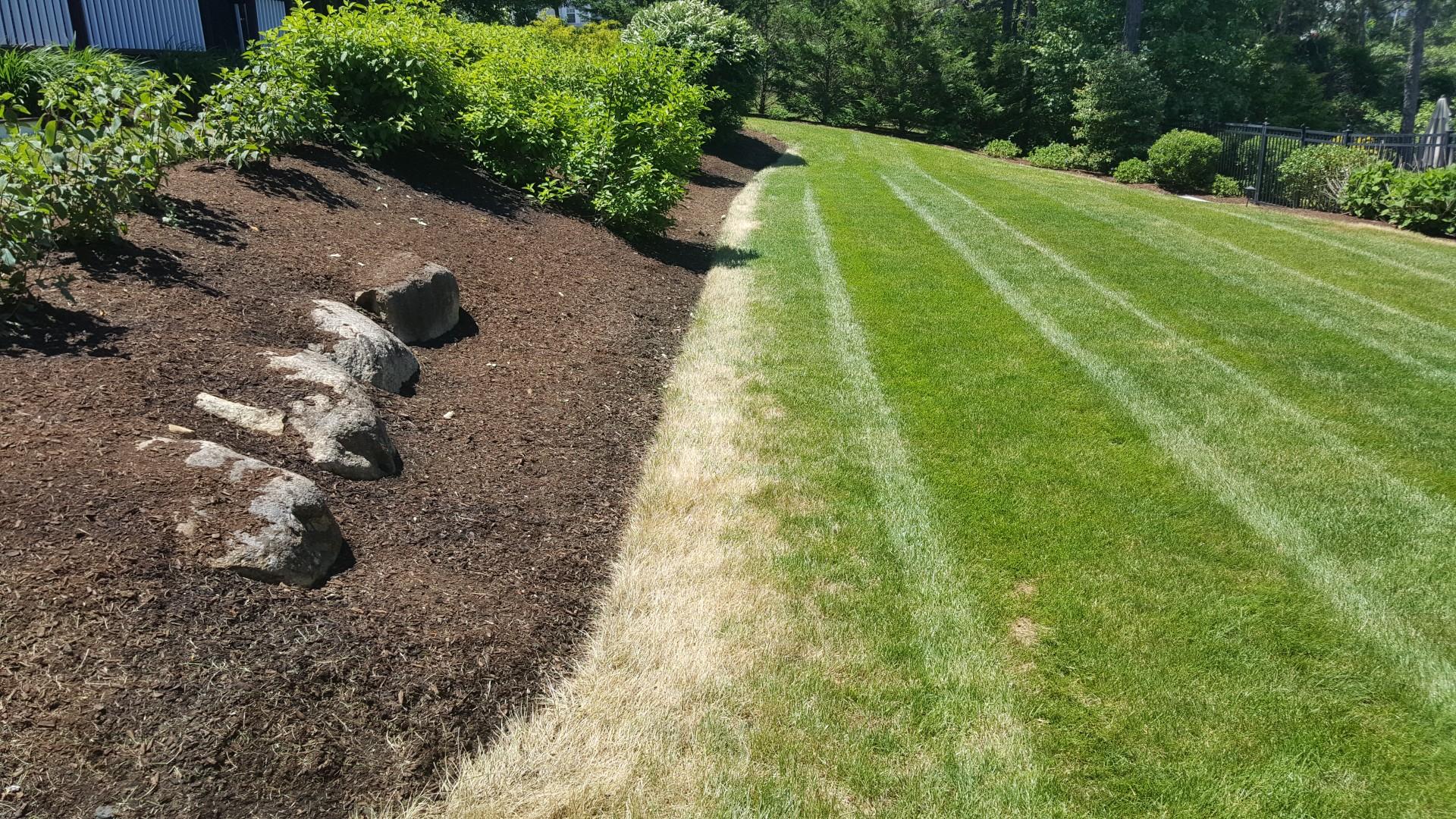Problems caused by toxic or sour mulch, also known as wood alcohol
- Occasionally the leaves of shrubs, annuals, or perennials may become bleached, scorched, or chlorotic after a fresh application of wood mulch products.
- This problem is caused by wood alcohol syndrome, also called sour mulch. Problems with wood mulch can occur when it is stored in very large piles (taller than 6 to 8 feet in height) for long periods of time. This is usually a problem with bulk mulch, but can also occur in bagged mulch that remains wet for long periods of time. The wood mulch undergoes anaerobic fermentation, a process where organisms convert organic matter into compounds such as ethanol and methanol. These volatile compounds accumulate and are released as gases that are toxic to plants. The leaves on lower branches of woody plants may drop, but most woody plants recover from damage. Small annual and perennial plants with severely bleached leaves may be killed.

How to prevent sour mulch
- Problems with wood mulch can be easily avoided.
- When bulk mulch is delivered, smell it before placing it around plants. Mulch that has developed wood alcohol syndrome will have a very strong alcohol-like odor as opposed to the pleasant mild smell of properly stored mulch.
- If you have any doubts about your mulch, aerate the pile and allow it to dry out before using the mulch.
- If sour mulch has already been applied, water thoroughly to leach any compounds that have not yet evaporated.
- Cut back damaged annuals and perennials and remove any dead plants.
